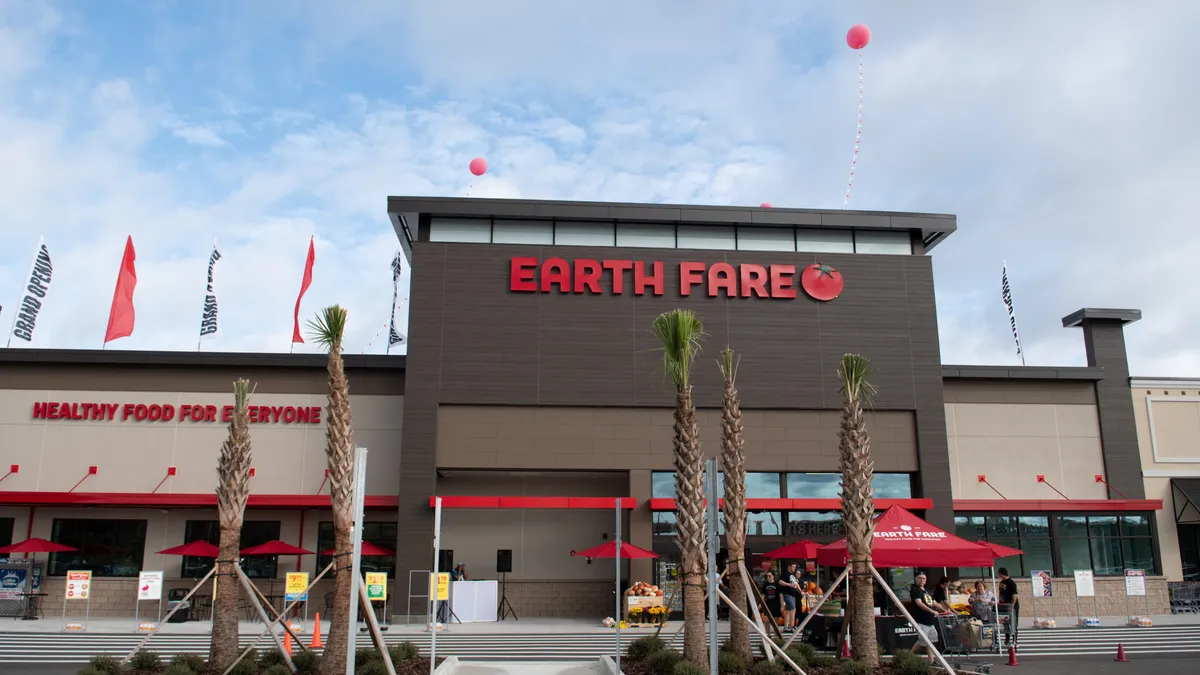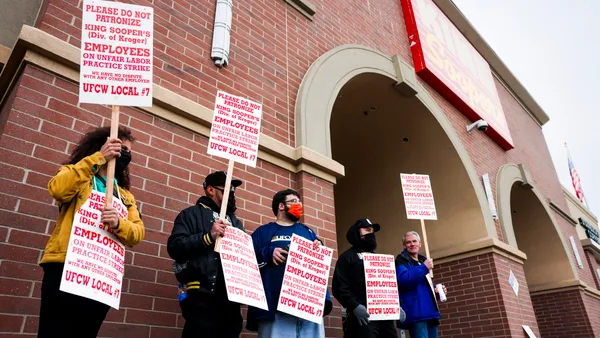Dive Brief:
- Earth Fare filed for Chapter 11 bankruptcy protection Tuesday, just one day after announcing it will close all 50 of its stores and its Fletcher, North Carolina headquarters. In court documents filed in Delaware, the company revealed its board of directors convened a restructuring committee in early November to evaluate options for the struggling chain, and that the committee ultimately decided that store closings and the bankruptcy filing would best serve its creditors.
- The grocer was in advanced negotiations with an unidentified party for 33 stores and the company’s headquarters, according to a declaration filed in the U.S. Bankruptcy Court in Delaware. The two sides held talks for three weeks, culminating with a meeting at Earth Fare’s home office, but the buyer said on Jan. 29 it was no longer interested.
- Earth Fare listed around $77 million in loan obligations and $60 million in outstanding trade payments and other unsecured claims. Among its top creditors are United Natural Foods, Inc. (UNFI) with a $9.6 million unsecured claim, Inland Seafood with a $6.2 million claim and Albert's Fresh Produce with a $5.9 million claim.
Dive Insight:
According to the court declaration made by chief restructuring officer Charles Goad, Earth Fare received a non-binding term sheet from the unidentified company on Jan. 8. The two sides “engaged in significant additional negotiations and conducted various rounds of additional diligence” over the next few weeks.
The two sides met on Jan. 28 at Earth Fare’s North Carolina headquarters with the intention of drawing up a final deal. Late in the day on Jan. 29, however, the prospective buyer announced it was no longer interested.
That negotiation was the culmination of several months Earth Fare’s representatives spent shopping around for buyers. The court declaration shows the chain contracted Deutsche Bank as its investment banker in May of last year. The firm held initial meetings with two parties regarding a sale, then sent out information sheets listing the sale in September. In November, Deutsche Bank made presentations to two interested parties, one of which ended up being the company that eventually traveled to Earth Fare’s headquarters.
Earth Fare also early last year engaged Piper Jaffray to explore financing opportunities. The firm received three offers by November, according to the court declaration, but the grocer decided none were sufficient to refinance its debt.
In December, Earth Fare sold off five underperforming stores — a move that helped finance the company’s continued search for a buyer and refinancing options.
At the same time it was in negotiations with the interested party in January, Earth Fare was exploring liquidation options in case a sale didn't go through. Two days after its prospective buyer walked away, Earth Fare’s largest supplier — likely UNFI — said it would no longer ship goods to the company’s stores due to unpaid orders. Without a buyer or a good refinancing option, and with a major store supply line cut off, Earth Fare’s management decided to sell off all its stores and liquidate inventory.
According to the declaration, Earth Fare struggled with poor store locations and competition as it expanded into new markets. It also faced steep expenses involved with remodeling its legacy stores. Combined with revolving loan obligations set to mature in late 2019, Earth Fare was faced with “significant liquidity challenges” that led to its store closures and the beginning of restructuring efforts.
Experts interviewed by Grocery Dive this week said the chain’s health-centered positioning was flawed, and combined with sub-par locations made it difficult to stand out in so many markets saturated with competition.













